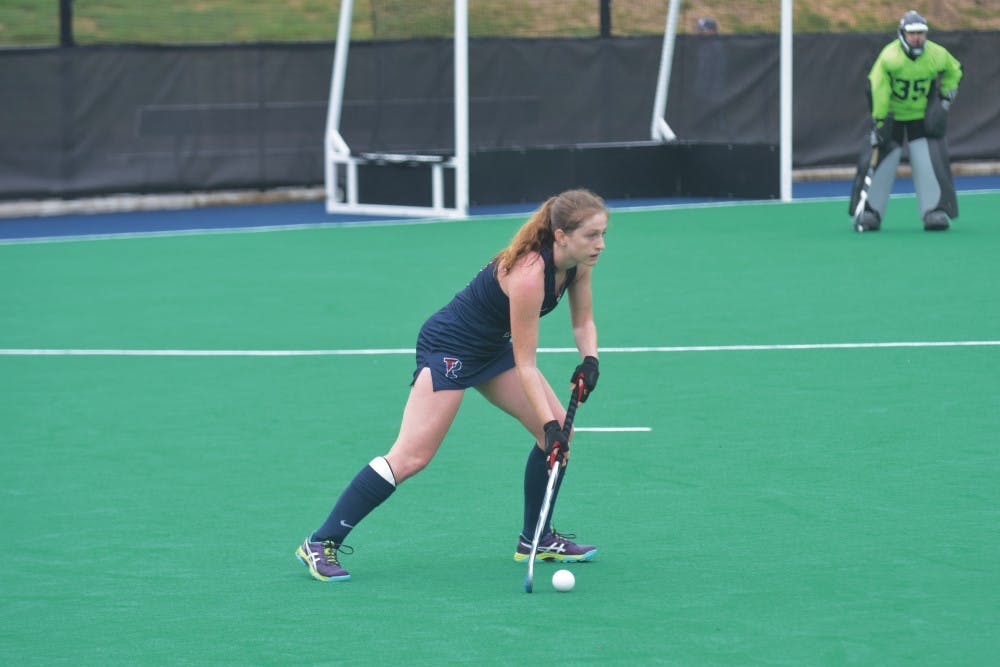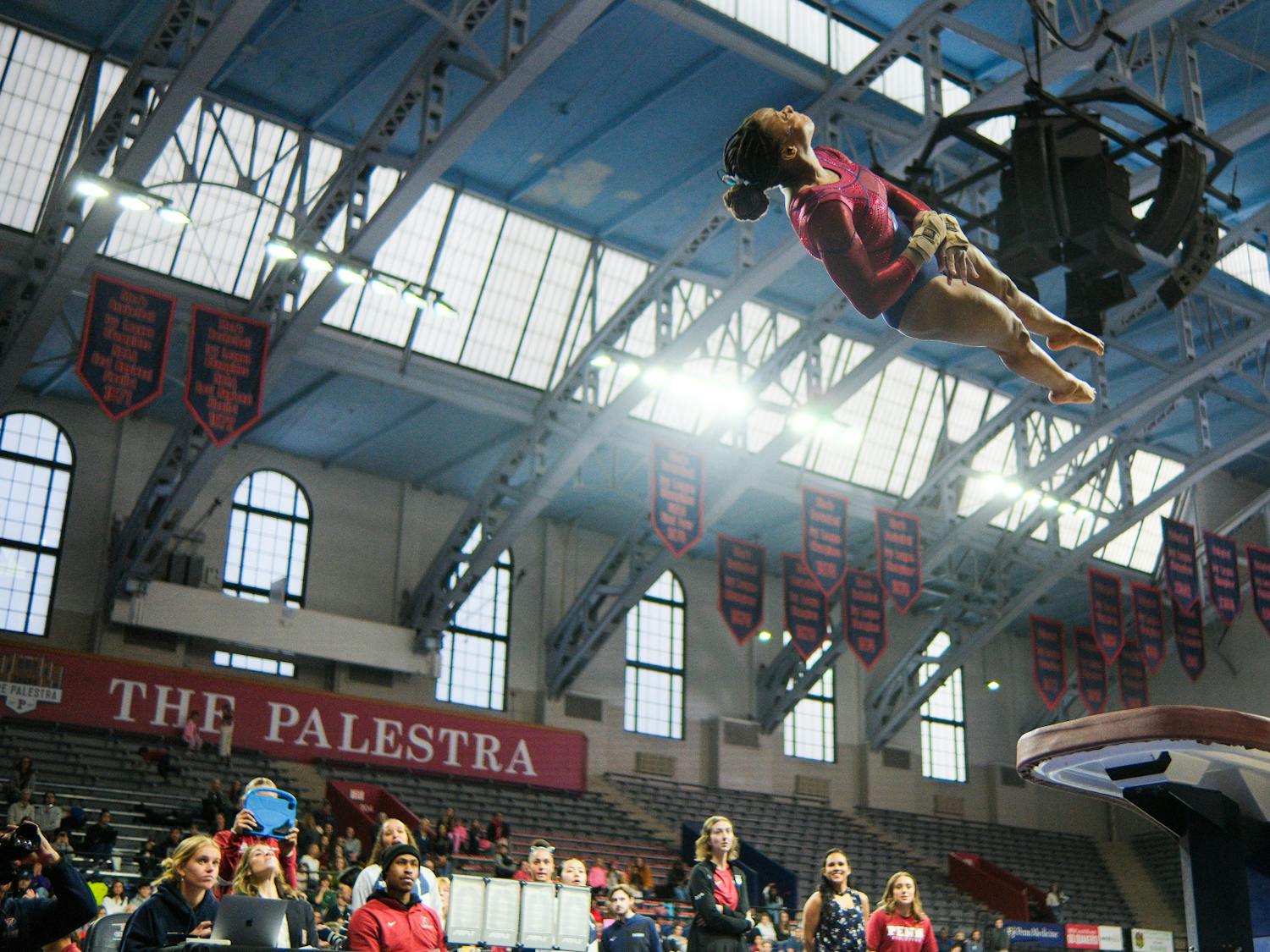Managing the academic workload at Penn isn’t easy. Balancing that rigor with the demands of being a varsity athlete is only a further challenge. So handling the student-athlete grind while formally helping others do the same should be downright inconceivable.
But for a select subset of Penn’s population, this seemingly impossible burden is merely business as usual.
More than 20 student-athletes serve as tutors for the Collegiate Athletic Achievement Program, a division within Penn’s Tutoring Center designed to have student-athletes tutored one-on-one by other student-athletes.
“I really like the idea of athletes tutoring athletes, that concept where you can relate to someone who has a really tough schedule, who’s on the road traveling,” said sprint football senior offensive lineman and honorable mention All-CSFL selection Jon Weyand. “Bonding over, ‘How the hell do you study for a final while also trying to win a championship?’ – I really like that piece of it.”
Athletes are encouraged to make appointments ahead of time via Student Development Coordinator Lauren Caminiti, but walk-in opportunities are often available. Most notably, student-athletes don’t have to pay to be tutored, as the Penn Tutoring Center covers the tutors’ base salary.
Generally, Assistant Athletic Director of Student Development Rosemarie Burnett works to recruit potential tutors. CAAP employees are required to have a cumulative GPA of at least 3.25, and they must have completed a course at Penn with either an A or A- to tutor that class.
Many of the CAAP employees enter the program with no tutoring experience, leading to an adjustment period as these student-athletes add yet another task to their already jam-packed slates.
“I remember the first person I had to tutor, it was intimidating, and definitely difficult the first time,” said sophomore field hockey defender Paige Meily, an NFHCA National Academic Squad selection in 2015. “It’s hard to prepare for the first time because I really didn’t know what to expect. But once I got the first one over with, I adjusted pretty quickly.”
With this difficulty in mind, one certainly wouldn’t blame these tutors for laying off the gas once their respective regular seasons roll around, but several continue to work for CAAP even in their seasons’ crunch time.
“It’s definitely difficult to manage, but it helps me with my time management. I know I have to allot three hours per week for it,” junior women’s basketball guard Beth Brzozowski said. “It’s pretty structured, so that definitely helps in terms of my planning.”
Of course, there are unquestionable benefits that make the grind worthwhile. From a school standpoint, these student-athletes are given the opportunity to refresh on academic material they might otherwise grow rusty in.
“I definitely feel like I’m getting something positive out of this experience,” Meily, a second team All-Ivy selection in 2016, said. “I’ve brushed up on my understanding of some class material, and I think I even understand some things better now then I did when I first took some classes.”
Outside the classroom, the program also enables student-athletes to bond in a unique setting, allowing them to interact and further boost the strong social culture within Penn Athletics.
“All the Monday night tutors are pretty close, and we can just mingle and get to know each other,” said Brzozowski, who was the Ivy League’s highest scoring non-starter in 2015-16. “It’s a great opportunity to get to know student-athletes from other sports.”
Needless to say, this student-athlete support system has been paying off dividends. In the very young school year, three Penn teams have already won league championships. Meanwhile, in the classroom, five Penn varsity teams have earned NCAA Public Recognition awards in each of the past 11 years — the fourth highest total of any Division I school.
So as the Red and Blue continue to make history on and off the field, the CAAP workers take pride in seeing a culture change before their eyes.
“Kind of why we exist is to make sure that the academic standards are maintained here,” Weyand said. “And I think it’s pretty cool seeing that come to life at Penn.”









